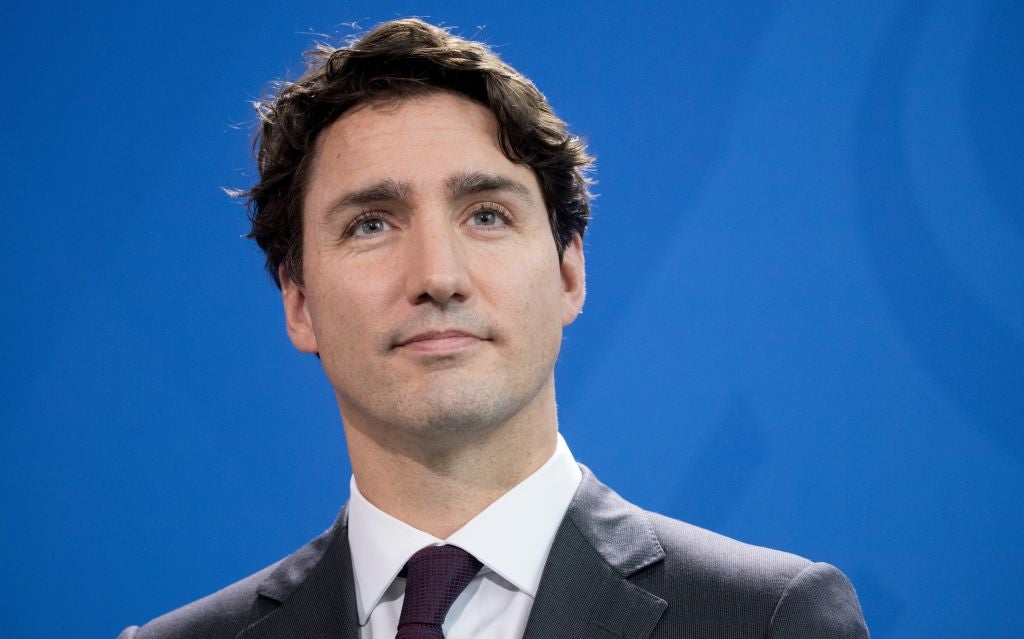Justin Trudeau attacks Mike Pence for throwing Nafta deal in jeopardy with five-year expiration date ultimatum
Canadian prime minister says US vice president's insistence on 'sunset provision' represents major stumbling block to success of talks

Your support helps us to tell the story
From reproductive rights to climate change to Big Tech, The Independent is on the ground when the story is developing. Whether it's investigating the financials of Elon Musk's pro-Trump PAC or producing our latest documentary, 'The A Word', which shines a light on the American women fighting for reproductive rights, we know how important it is to parse out the facts from the messaging.
At such a critical moment in US history, we need reporters on the ground. Your donation allows us to keep sending journalists to speak to both sides of the story.
The Independent is trusted by Americans across the entire political spectrum. And unlike many other quality news outlets, we choose not to lock Americans out of our reporting and analysis with paywalls. We believe quality journalism should be available to everyone, paid for by those who can afford it.
Your support makes all the difference.Canadian Prime Minister Justin Trudeau said months of intense negotiations between his country, the United States and Mexico imploded on Tuesday when Vice President Mike Pence demanded that any deal expire automatically in five years.
Mr Trudeau said he was prepared to travel to Washington this week to try and finalise a rework of the North American Free Trade Agreement (Nafta), but Mr Pence – in the phone call – said a meeting would only occur if the “sunset” provision was agreed to in advance.
“I had to highlight that there was no possibility of any Canadian prime minister signing a Nafta deal that included a five year sunset clause, and obviously the visit didn't happen,” Mr Trudeau said on Thursday.
Mr Trudeau's comments came after US President Donald Trump enacted the most severe economic penalties he has imposed to date against US allies, establishing tariffs on steel and aluminium imports from Canada, Mexico and the European Union. The trade partners are all expected to retaliate in what is becoming a fast-developing global trade war.
A White House official, who spoke on condition of anonymity to describe the back and forth between both countries, said Mr Trudeau spoke to Mr Trump last Friday, and then Mr Trudeau called Mr Pence on Monday to follow up. Mr Pence called Mr Trudeau back on Tuesday “to discuss ongoing negotiations.”
The sunset issue was one of several that the White House wanted “clarity” on before any meeting took place, the White House official said.
These tensions are only expected to intensify. Mr Trump, Mr Trudeau, and several other world leaders are scheduled to meet next week in Canada at the G7 meeting.President Trump has said the tariffs were necessary in order to protect US national security, but they were widely criticised by foreign leaders, US business groups, and even some labour groups as being ill-designed and potentially damaging to the US economy.
The White House has sought to include a “sunset” provision in the Nafta renegotiation for months, but Canada and Mexico have long been cool to the idea, saying it would remove any economic security and certainty for businesses trying to comply with trade rules.
Mr Trudeau on Thursday said he felt the US, Mexico and Canada were on the verge of a renegotiated Nafta that he described as a “win, win, win” before the talks stalled after the Pence phone call.
Mr Trump has threatened to take steps to withdraw from Nafta for more than a year, but during his first year in office he was coaxed out of taking dramatic steps by advisers like National Economic Council President Gary Cohn and Secretary of State Rex Tillerson.
Now, both of those men have left the White House, and Mr Trump has gravitated instead towards seeking the counsel of trade hard-liners like Commerce Secretary Wilbur Ross, senior adviser Peter Navarro, and US Trade Representative Robert Lighthizer.
Mr Trump had taken a slightly less adversarial public approach with Canada and Mexico during the initial stages of the negotiations, but that ended several months ago.
In March, Mr Trump told a group during a St. Louis fundraiser that he simply made up statements during private trade discussions with Mr Trudeau even though he didn't have the facts in front of him.
And on Tuesday, Mr Trump said during a rally that he was going to make Mexico pay for a wall along the US border. That immediately elicited a terse response from Mexico's leader.
“President @realDonaldTrump: NO. Mexico will NEVER pay for a wall. Not now, not ever. Sincerely, Mexico (all of us),” he tweeted on Tuesday.
The Washington Post
Join our commenting forum
Join thought-provoking conversations, follow other Independent readers and see their replies
Comments